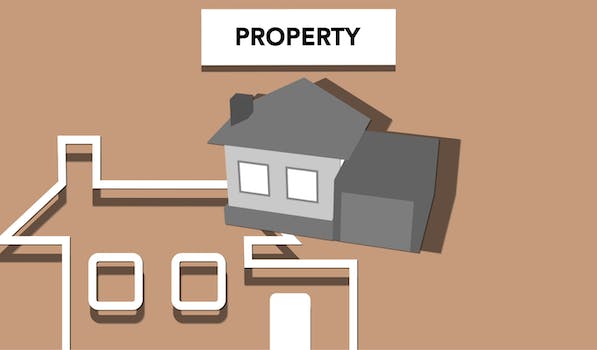How To Build Wealth In Real Estate
“Unlock the secrets to building long-term wealth through real estate investments.”
Introduction
Real estate is a popular investment option for those looking to build wealth. With the potential for long-term appreciation and passive income, real estate can be a lucrative asset class. However, building wealth in real estate requires knowledge, strategy, and patience. In this article, we will explore some tips and strategies for building wealth in real estate.
Investing in Rental Properties: Tips and Strategies
Real estate is one of the most popular investment options for those looking to build wealth. Investing in rental properties can be a great way to generate passive income and build long-term wealth. However, it’s important to approach real estate investing with a solid strategy and a clear understanding of the risks involved. In this article, we’ll explore some tips and strategies for building wealth through rental property investments.
First and foremost, it’s important to do your research before investing in any rental property. This means understanding the local real estate market, including property values, rental rates, and vacancy rates. You’ll also want to research the neighborhood where the property is located, including crime rates, school districts, and access to amenities like shopping and public transportation.
Once you’ve identified a potential rental property, it’s important to run the numbers to ensure that it’s a profitable investment. This means calculating the potential rental income, as well as the expenses associated with owning and managing the property. These expenses may include property taxes, insurance, maintenance and repairs, and property management fees if you plan to hire a professional to handle the day-to-day operations of the property.
When it comes to financing your rental property investment, there are a few different options to consider. Many investors choose to take out a mortgage to finance the purchase of the property, while others may use cash or other forms of financing. It’s important to consider the interest rates and terms of any financing options, as well as the potential impact on your cash flow and overall profitability.
Once you’ve purchased your rental property, it’s important to manage it effectively in order to maximize your returns. This may involve hiring a property manager to handle tenant screening, rent collection, and maintenance and repairs. Alternatively, you may choose to manage the property yourself, but it’s important to be prepared for the time and effort involved in doing so.
One key strategy for building wealth through rental property investments is to focus on long-term appreciation. This means choosing properties in areas with strong growth potential, and holding onto them for several years in order to benefit from rising property values. Of course, this strategy requires patience and a willingness to weather short-term fluctuations in the real estate market.
Another strategy for building wealth through rental properties is to invest in multiple properties over time. This can help to diversify your portfolio and spread your risk across multiple properties and locations. However, it’s important to be mindful of your cash flow and overall financial situation when taking on multiple properties, as each one will require ongoing expenses and management.
In conclusion, investing in rental properties can be a great way to build long-term wealth and generate passive income. However, it’s important to approach real estate investing with a solid strategy and a clear understanding of the risks involved. By doing your research, running the numbers, and managing your properties effectively, you can build a successful rental property portfolio and achieve your financial goals.
Flipping Houses: A Beginner’s Guide to Real Estate Investing

Real estate investing can be a great way to build wealth, but it can also be a daunting task for beginners. Flipping houses is one of the most popular ways to get started in real estate investing. It involves buying a property, renovating it, and then selling it for a profit. Here are some tips for beginners on how to build wealth in real estate through flipping houses.
The first step is to do your research. You need to know the real estate market in your area, including the average home prices, the types of properties that are in demand, and the neighborhoods that are up-and-coming. You also need to know the costs involved in flipping a house, including the purchase price, renovation costs, and selling expenses. This will help you determine if a property is a good investment or not.
Once you have done your research, it’s time to start looking for properties. You can find properties through real estate agents, online listings, or by driving around neighborhoods that interest you. Look for properties that are in need of renovation but have good bones. You want to be able to add value to the property through your renovations.
When you find a property that you are interested in, it’s important to do a thorough inspection. This will help you identify any potential problems with the property that could affect your renovation costs. You should also get an estimate from a contractor on the cost of the renovations. This will help you determine if the property is a good investment or not.
Once you have purchased the property, it’s time to start the renovations. It’s important to have a plan in place before you start the renovations. This will help you stay on budget and on schedule. You should also hire a contractor to oversee the renovations. This will ensure that the renovations are done correctly and on time.
When the renovations are complete, it’s time to put the property on the market. You should work with a real estate agent to list the property and market it to potential buyers. You should also be prepared to negotiate with buyers to get the best price for the property.
Once the property is sold, it’s time to calculate your profits. You should subtract the purchase price, renovation costs, and selling expenses from the sale price. This will give you your net profit. If you have made a profit, congratulations! You have successfully flipped a house and built wealth in real estate.
Flipping houses can be a great way to build wealth in real estate, but it’s important to remember that it’s not a get-rich-quick scheme. It takes time, effort, and money to flip a house successfully. You also need to be prepared for unexpected expenses and delays.
If you are interested in flipping houses, start by doing your research and finding a property that is a good investment. Work with a contractor to oversee the renovations and a real estate agent to market the property. Be prepared to negotiate with buyers to get the best price for the property. And most importantly, be patient and persistent. With hard work and dedication, you can build wealth in real estate through flipping houses.
Building a Real Estate Portfolio: Diversification and Risk Management
Real estate is a great way to build wealth, but it’s important to approach it with a solid strategy. One key aspect of building a real estate portfolio is diversification and risk management.
Diversification means spreading your investments across different types of properties and locations. This helps to reduce risk and increase the potential for long-term growth. For example, you might invest in both residential and commercial properties, or in properties in different cities or states.
When it comes to risk management, there are a few key things to keep in mind. First, it’s important to have a solid understanding of the local real estate market. This means doing your research and staying up-to-date on trends and developments in the area.
Another important aspect of risk management is having a solid financial plan in place. This means having a clear understanding of your budget, your cash flow, and your long-term goals. It also means having a contingency plan in place in case of unexpected expenses or changes in the market.
One way to diversify your real estate portfolio is to invest in different types of properties. For example, you might invest in both residential and commercial properties. Residential properties can provide a steady stream of rental income, while commercial properties can offer higher returns but may also come with higher risks.
Another way to diversify is to invest in properties in different locations. This can help to reduce risk by spreading your investments across different markets. For example, you might invest in properties in both urban and suburban areas, or in different states or regions.
When it comes to risk management, it’s important to have a solid financial plan in place. This means having a clear understanding of your budget, your cash flow, and your long-term goals. It also means having a contingency plan in place in case of unexpected expenses or changes in the market.
One way to manage risk is to invest in properties with a solid track record of rental income. This can help to ensure a steady stream of cash flow, even in a down market. Another way to manage risk is to invest in properties with a low vacancy rate. This can help to ensure that your properties are consistently generating income.
It’s also important to have a solid understanding of the local real estate market. This means doing your research and staying up-to-date on trends and developments in the area. For example, you might keep an eye on new developments or changes in zoning laws that could impact the value of your properties.
Ultimately, building a real estate portfolio requires a solid strategy and a willingness to take calculated risks. By diversifying your investments and managing risk effectively, you can build long-term wealth and achieve your financial goals.
Creative Financing Options for Real Estate Investments
Real estate is a great way to build wealth, but it can be challenging to get started. One of the biggest obstacles is financing. Traditional financing options, such as bank loans, can be difficult to obtain, especially for first-time investors. Fortunately, there are creative financing options available that can help you get started on your real estate investment journey.
One option is seller financing. This is when the seller of the property acts as the lender and finances the purchase for the buyer. This can be a win-win situation for both parties. The seller gets a steady stream of income from the buyer, and the buyer gets to purchase the property without having to go through a traditional lender. Seller financing can be a great option for those who have a hard time getting approved for a loan or who want to avoid the strict requirements of traditional lenders.
Another option is a lease option. This is when the buyer leases the property from the seller with the option to purchase it at a later date. This can be a great option for those who want to test the waters before committing to a purchase. It also allows the buyer to build up equity in the property while they are leasing it. The downside is that the buyer may end up paying more for the property in the long run, as the seller may charge a higher price for the option to purchase.
A third option is a private lender. This is when an individual or group of individuals lend money to the buyer for the purchase of the property. Private lenders can be a great option for those who have a hard time getting approved for a loan or who want to avoid the strict requirements of traditional lenders. Private lenders may also be more flexible with their terms and may be willing to work with the buyer to come up with a payment plan that works for both parties.
A fourth option is a hard money lender. This is when a lender provides a short-term loan to the buyer for the purchase of the property. Hard money lenders are typically more expensive than traditional lenders, but they can be a great option for those who need money quickly or who have a hard time getting approved for a loan. Hard money lenders may also be more flexible with their terms and may be willing to work with the buyer to come up with a payment plan that works for both parties.
A fifth option is crowdfunding. This is when a group of investors pool their money together to invest in a property. Crowdfunding can be a great option for those who want to invest in real estate but don’t have a lot of money to invest. It also allows investors to diversify their portfolio by investing in multiple properties. The downside is that investors may not have as much control over the investment as they would if they were investing on their own.
In conclusion, there are many creative financing options available for real estate investments. Whether you choose seller financing, a lease option, a private lender, a hard money lender, or crowdfunding, it’s important to do your research and choose the option that works best for you. Real estate can be a great way to build wealth, but it’s important to make sure you’re making a smart investment. With the right financing and a little bit of luck, you can build a successful real estate portfolio and achieve financial freedom.
Maximizing Profit: Negotiating and Closing Real Estate Deals
Real estate is one of the most lucrative investment opportunities available today. With the right strategy, you can build wealth and secure your financial future. However, to succeed in real estate, you need to know how to negotiate and close deals effectively. In this article, we will discuss some tips on how to maximize profit by negotiating and closing real estate deals.
The first step in maximizing profit is to do your research. Before you start negotiating, you need to know the market value of the property you are interested in. This will help you determine the maximum amount you should be willing to pay for the property. You can use online tools, such as Zillow or Redfin, to get an estimate of the property’s value. You can also consult with a real estate agent or appraiser to get a more accurate valuation.
Once you have done your research, it’s time to start negotiating. The key to successful negotiation is to be prepared and confident. You should have a clear idea of what you want to achieve and what you are willing to compromise on. You should also be aware of the seller’s motivations and constraints. For example, if the seller needs to sell quickly, you may be able to negotiate a lower price.
During the negotiation process, it’s important to listen carefully to the other party and try to understand their perspective. You should also be willing to compromise and find a win-win solution. For example, you may be able to negotiate a lower price if you agree to a shorter closing period or waive some contingencies.
Once you have reached an agreement, it’s time to close the deal. Closing a real estate deal can be a complex process, so it’s important to work with a qualified real estate attorney or title company. They can help you navigate the legal and financial aspects of the transaction and ensure that all the necessary documents are in order.
One of the most important documents in a real estate transaction is the purchase agreement. This document outlines the terms and conditions of the sale, including the purchase price, closing date, and contingencies. It’s important to review the purchase agreement carefully and make sure that all the terms are acceptable before signing.
Another important aspect of closing a real estate deal is financing. If you are taking out a mortgage to purchase the property, you will need to work with a lender to secure financing. You should shop around for the best rates and terms and make sure that you understand all the fees and charges associated with the loan.
Finally, it’s important to conduct a final walkthrough of the property before closing. This will give you an opportunity to ensure that the property is in the condition you expected and that all the agreed-upon repairs have been completed. If there are any issues, you can address them before closing.
In conclusion, building wealth in real estate requires a combination of research, negotiation, and closing skills. By doing your homework, being prepared and confident during negotiations, and working with qualified professionals during the closing process, you can maximize your profit and achieve your financial goals.
Conclusion
Conclusion: Building wealth in real estate requires a combination of knowledge, patience, and strategic decision-making. It is important to do thorough research, invest in properties with potential for appreciation, and manage your finances wisely. With dedication and a long-term perspective, real estate can be a lucrative investment for building wealth.





